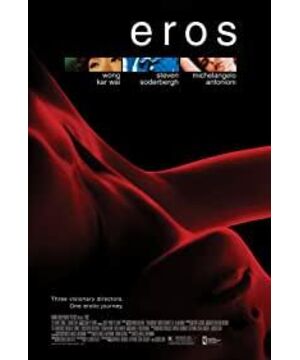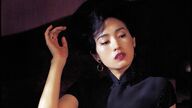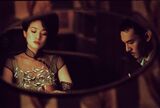Miss Hua Hua and Xiao Zhang, an apprentice in a tailor shop, two strangers in different social statuses, met through business. The honest, honest and somewhat dull Xiao Zhang was waiting to meet Miss Hua for the first time when he heard about an intense sexual intercourse. This was a big mental shock to the young him, so that he had an instinctive desire response to it. Miss Hua has long been familiar with the affairs of men and women, and after meeting, she can see through Xiao Zhang's simple desires under the pretended calm surface. With amusing and joking, Miss Hua helped Xiao Zhang complete a release of desire. This is also the beginning of the bond between the two.
Since then, Ms. Hua's clothes have been entirely cut and produced by Xiao Zhang, and a business has become a link to communicate the emotions of the two. The relationship between the two gradually became complicated through the ups and downs of Miss Hua's life.
Until the death of Miss Hua, she did not have sex with Xiao Zhang. In the later stage of her serious illness, when Xiao Zhang tried to have intimate physical contact with Miss Hua, Miss Hua even pushed Xiao Zhang with her hands to keep him away from her; She also covered Xiao Zhang's mouth with her hand and put her hand on Xiao Zhang's chest, silently telling the love she knew but could not achieve. The emotional progression between Miss Hua and Xiao Zhang is clean and pure, even though she used to be a prostitute during her lifetime.
The opening two-minute painting first showed the theme to the audience, and the painting style was full of Chinese elements. It can be seen from the paintings that this film describes a love story full of passion and desire, with bright colors and jumping. Some of the paintings are overexposed, creating an illusion and unreality. However, it can still be found that the main color tone of the film is dark and cool between the paintings.
The film uses a flashback narrative technique, with the first line "How are you today?", which directly expresses the male protagonist's concern for the female protagonist. A few dialogues explain the identities and occupations of the two, and elicit the "hand" this topic.
"Hand" is undoubtedly the narrative thread of the whole story, and it is always the only way to express love in the whole film. Miss Hua helped Xiao Zhang release her desire with her hands, and Xiao Zhang helped Miss Hua make clothes with her hands. The "hand" effectively promoted the development of the relationship and the plot between the two. The beginning and end of the film also use the same scene and narrative content, echoing the beginning and the end. Make the story full and full. Make the theme clear.
The whole film is dominated by cool tones, and the back of the film is darker, revealing the dark side of society, and also implying the final direction of the relationship between the two. In the end, there is no stable and warm emotional belonging. Coldness and a sense of distance are safe distances. The experienced Miss Hua understands this, and Xiao Zhang has to accept it too.
This film is mostly shot indoors. Through the frames of doors and windows, it can show Xiao Zhang's long-suppressed inner emotions. The lines are cold and hard, implying that Miss Hua and Xiao Zhang are always separated by a cold distance.
The handling of shadows is also a highlight of the whole film. Xiao Zhang always makes clothes for Miss Hua under the light. From the emotional level and social relationship status, it is not difficult to find that he is in a more sunny place. And Miss Hua's few "brightness" appeared at the turning point and hope of her life. When getting along with Xiao Zhang, Miss Hua mostly stays in the shadows.
At the end, Xiao Zhang informs Master that Miss Hua has passed away. The camera facing Master is blurry, while Xiao Zhang's back is particularly clear. Here, the audience is forced to listen carefully to Xiao Zhang's narration, and the lonely back also reveals Xiao Zhang's inner grief. The last shot of the film is a close-up of Zhang's face. The emotional entanglement between the two finally came to an end here.
As a transitional bgm at the beginning of the film's story, the sound of rain leads the audience back to the real world and creates a heavy, depressing and sad atmosphere. Here, "Hand" and "Rashomon" have the same purpose.
The god of love is a character in Western mythology and culture, and the story takes place in China. Wong Kar-wai familiarly inserted the two cultures into the film in the selection of the film's back music, which not only showed his pursuit of film music aesthetics, but also invisible. Adds a lot of color to the film.
Nothing to do with romance. Perhaps in the long river of time, the eternal love and love are still the most affectionate, the most profound, the most crazy, and the most simple.
View more about Eros reviews











